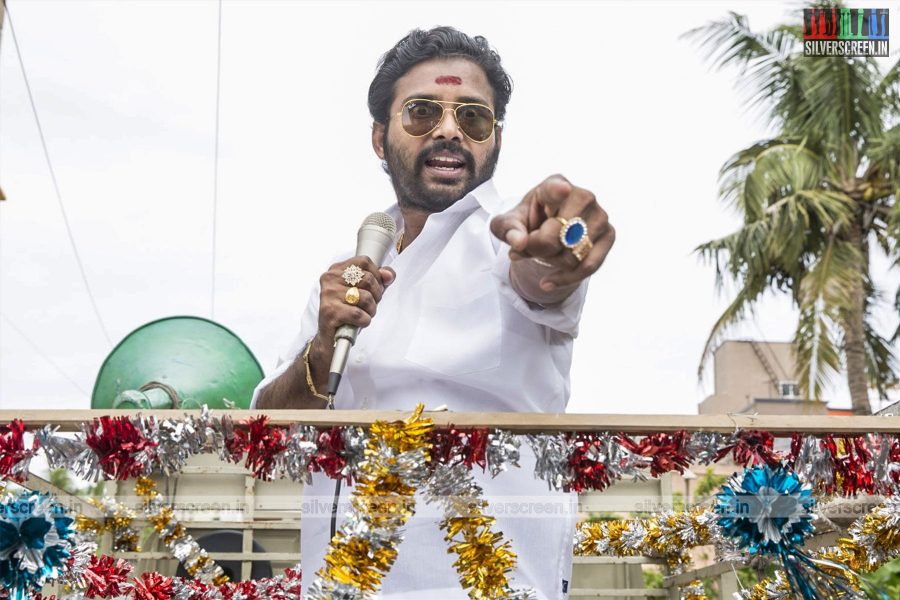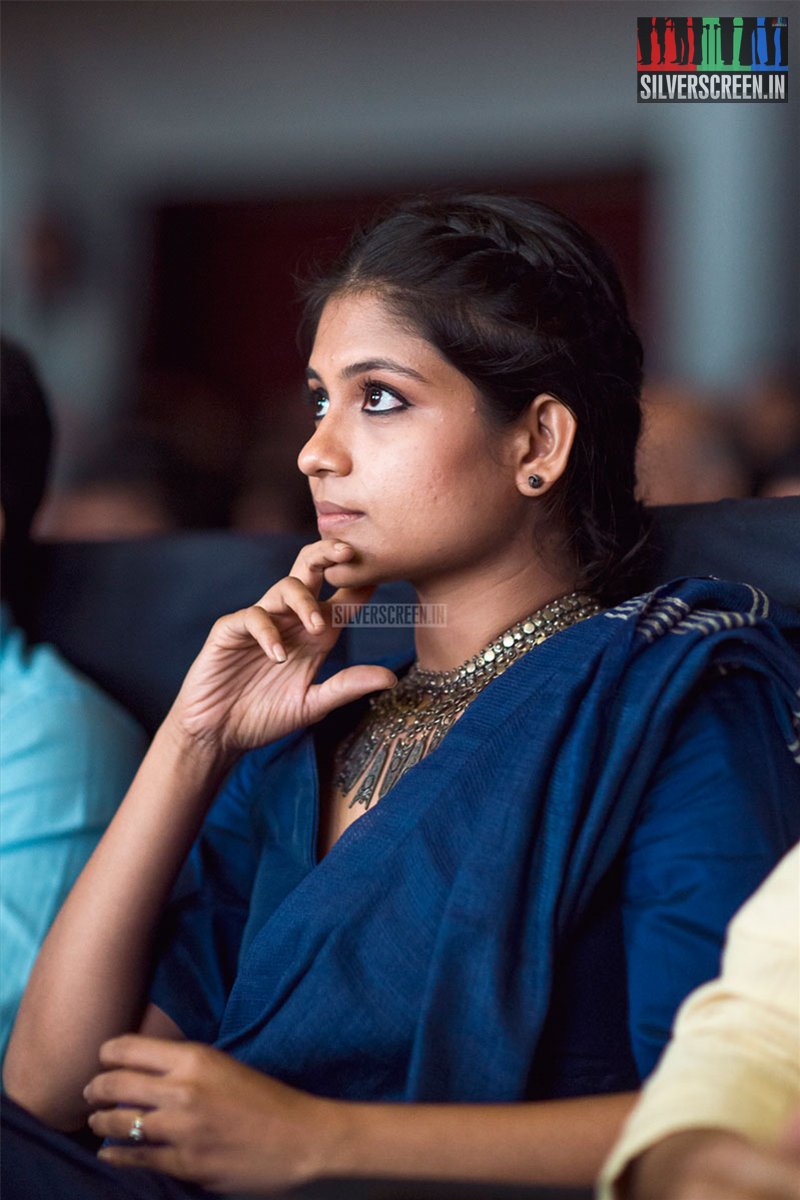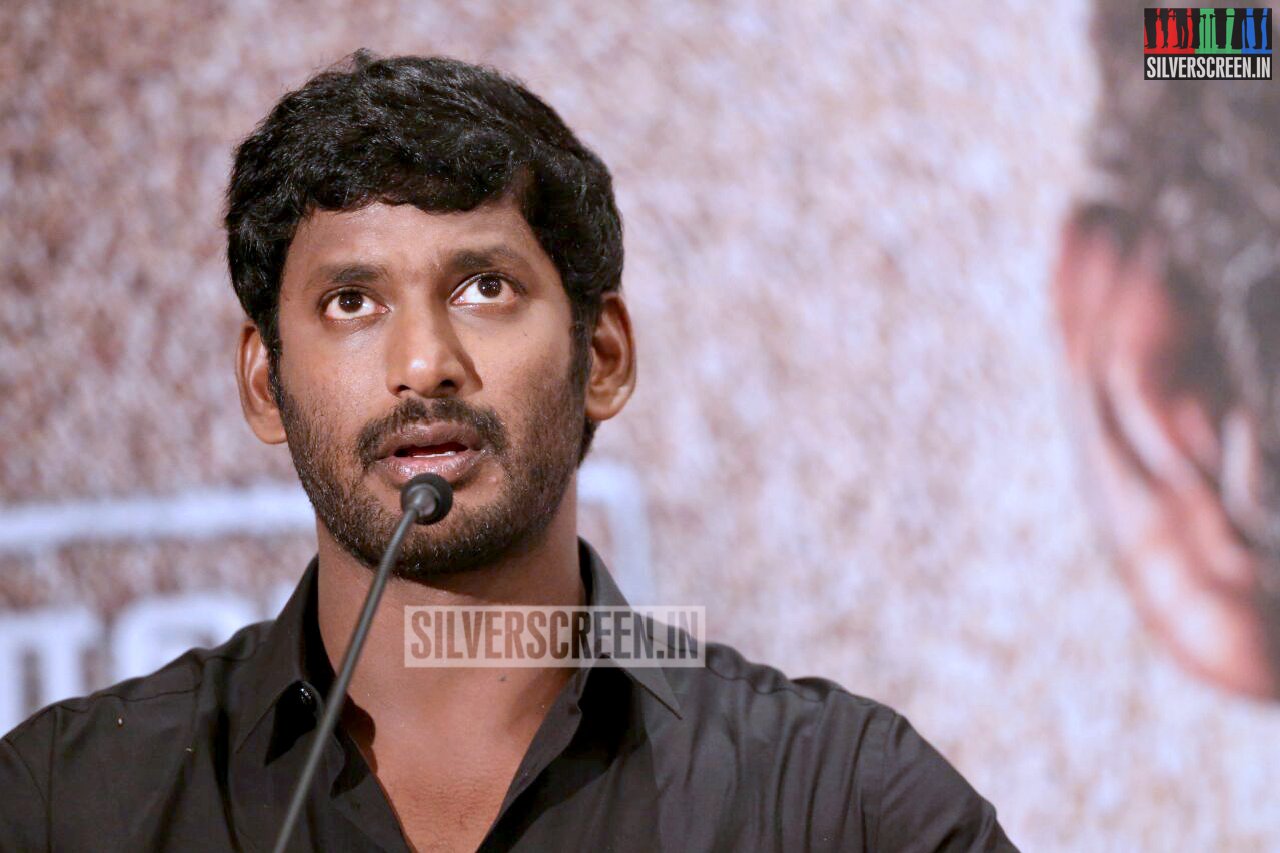Director: Rajkumar
Cast: ‘Attakathi’ Dinesh, Mahima Nambiar, Radha Ravi
Composer: Arrol Corelli
There’s nothing extraordinary about Annanukku Jey’s [Glory Be To You, Brother] rural milieu, if not for the perfect face-scape. It’s populated by the right kind of people, the right kind of actors, and a theme that even if uninteresting at first – one among the many films set in a village – rapidly unveils its quirky ideas. ‘Attakathi’ Dinesh is Sekar, an aimless youth whose days are spent wooing a woman. When Mahima Nambiar is introduced, she’s shown to be a part of a musical band for hire, sporting a uniform, a trumpet to her lips. It’s an unusual sort of job for a rural woman, but the peculiarity works splendidly – because those are most likely the realities of a town riddled with developmental delays and scarce employment opportunities. The band religiously tumbles out of their vehicle at every event, takes up position along the sidewalk and strikes up a gay tune. When there’s demand for something more upbeat, Mahima – her screen name doesn’t quite register – quickly plays a Dhanush number. She’s feisty, this girl, turning down the advances of Sekar with retorts – you don’t quite know how to kiss, she declares impishly when he approaches, and implores him to learn before pursuing her. Even otherwise, she’s just cool showing up to work in her costume, belting out cheerful notes with a poker face; an easy win for characterisation there.
The film opens with some petty political squabbling; a man tears down posters of his own party and installs ones with his signature on the wall, while his henchmen follow suit. It seems a trivial enough instance to document at first, but is actually a prelude of what’s to come. The local party leader (Radha Ravi) deals with rogue workers who are at each other’s throats all the time. More than the threat from outside, he’s bogged down by in-house rivalry – or so it seems. Debut director Rajkumar is positively canny in his casting of Radha Ravi – the man’s minute expressions, as they flit from that of a sly politician to betraying a deceptive hint of warmth with a political aspirant, and back to being a sly politician soon after his exit – are marvellous. Knowing the kind of roles that come Radha Ravi’s way, the exceptions being Manithan and Pisaasu – in Manithan, he was a rather humorous judge while Myssin’s Pisaasu saw him play father to the most benevolent spirit – his is obviously that of a shrewd, seasoned leader, who, ironically, loses to a political novice, and is graceless in defeat.
Recommended
When Sekar approaches him for a position in the party, he’s soon made a pawn in a series of political games. But Annanuku Jey doesn’t take itself seriously; it sometimes laughs with Sekar, and sometimes at, and there’s no hint of drama whatsoever. It follows Sekar as he tries to win the approval of his leader, but gets sent to prison instead – on work – where he learns a few valuable lessons. It sees him transform from an aimless youth in search of a job to an aspiring politician who learns the tricks of the trade, and finally, takes on Radha Ravi himself. In the earlier portions of the film, Sekar shies away from altercations; in one instance, he’s shown to drink himself senseless before attempting to kill someone, but the way he turns over a new leaf, all brash rowdyism later, is a tale that the film savours with every frame. He’s also bestowed a name worthy of local politician-don, and the scenes that lead up to the moment are especially hilarious.
******
The Annanukku Jey review is a Silverscreen original article. It was not paid for or commissioned by anyone associated with the movie. Silverscreen.in and its writers do not have any commercial relationship with movies that are reviewed on the site.



